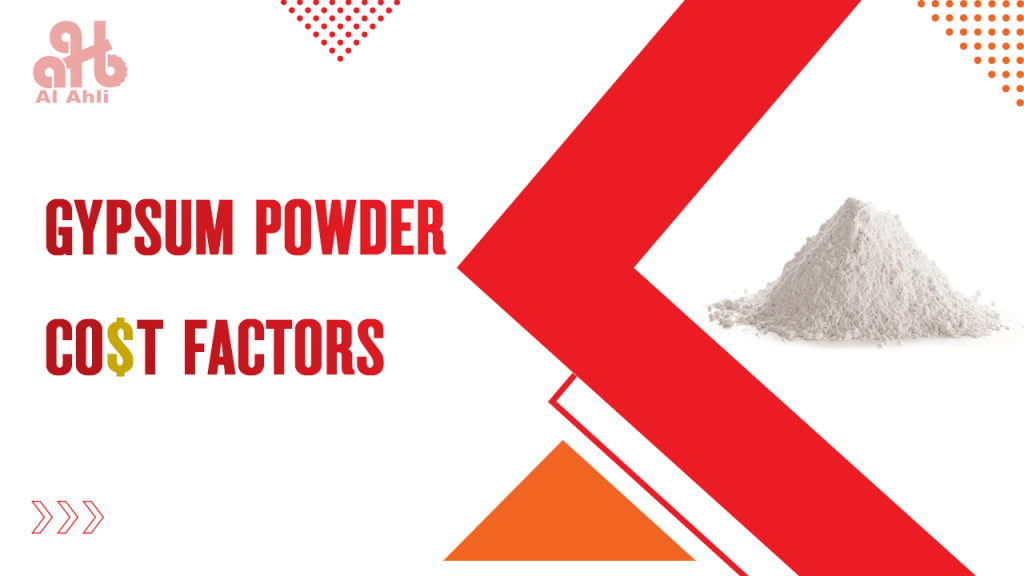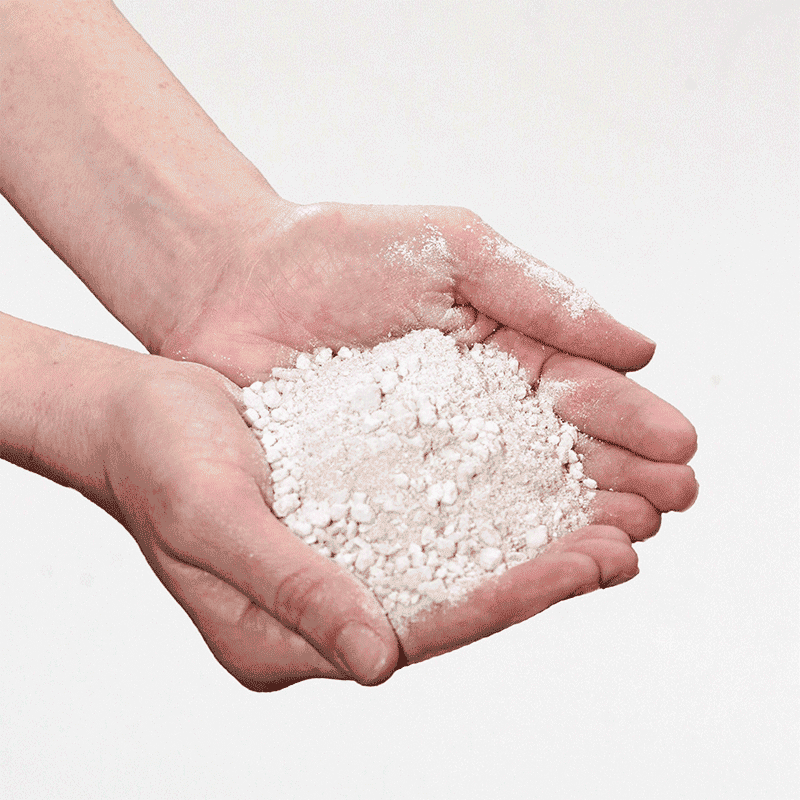Gypsum Powder Cost Factors
The cost of gypsum powder is influenced by several factors, including:
Quality: Higher-quality gypsum powder typically comes at a higher price due to the superior materials and manufacturing processes involved.
Quantity: Buying gypsum powder in bulk can often lead to cost savings. It is essential to accurately calculate the required quantity to avoid overestimating or underestimating, which can lead to unnecessary expenses or delays.
Supplier: Different suppliers may offer different prices for gypsum powder. It is advisable to compare prices from multiple suppliers to ensure you are getting the best deal.

Market Conditions: Market conditions, such as supply and demand dynamics, can impact gypsum powder prices. High demand during peak construction seasons can drive prices up, while oversupply or low demand can lead to price reductions.
Raw Material Costs: The cost of extracting and processing gypsum can vary based on geographical location, mining conditions, and the availability of gypsum deposits. Fluctuations in raw material costs directly impact the gypsum powder price.
Transportation Costs: The proximity of manufacturing plants to construction sites can influence transportation expenses. Additionally, fuel prices and logistical challenges can cause variations in the overall cost.
Packaging and Storage: Proper packaging is essential to maintain the quality of gypsum powder during transit and storage. The cost of packaging materials and storage facilities contributes to the final price.
Additives and Enhancements: Some gypsum powders may include additional features such as improved fire resistance, mold resistance, or enhanced soundproofing properties. These added benefits can contribute to a higher price.
Brand Reputation: Established brands with a strong reputation for delivering high-quality products may charge a premium for their gypsum powder due to their reliability and consistent quality.
Understanding these factors is crucial for making informed decisions and managing your construction budget effectively. Additionally, considering the benefits of gypsum plaster, such as fire resistance, sound insulation, smooth finish, easy application, and durability, can help you achieve the desired results for your project. In the following, we will examine three key factors that influence the price of gypsum powder in greater detail:

Mesh Size Effect On Gypsum Powder Cost
The mesh size of gypsum powder significantly affects its performance. Here are the key points to consider:
Particle Size Distribution: The particle size distribution of gypsum powder is critical in determining its performance. Finer particles (higher mesh sizes) can lead to better adhesion, smoother finishes, and increased compressive strength. Coarser particles (lower mesh sizes) may result in lower strength and a rougher finish.
Setting Time: The particle size distribution also impacts the setting time of gypsum plaster. Finer particles can lead to faster setting times, while coarser particles can result in slower setting times.
Compressive Strength: The compressive strength of gypsum plaster is influenced by the particle size distribution. Finer particles can increase compressive strength, while coarser particles can decrease it.
Adhesion: The mesh size of gypsum powder affects its adhesion properties. Finer particles can improve adhesion, while coarser particles may lead to lower adhesion.
Flexibility and Softness: The mesh size also impacts the flexibility and softness of gypsum plaster. Finer particles can result in a softer and more flexible final product, while coarser particles can lead to a harder and less flexible product.
Washability: The mesh size affects the washability of gypsum plaster. Finer particles can improve washability, while coarser particles may lead to lower washability.
Quality Effect On Gypsum Powder Cost
The quality of gypsum powder significantly impacts its price. Higher-quality gypsum powder typically comes at a higher price due to the superior materials and manufacturing processes involved. Here are some key points to consider:
Raw Materials: The quality of the raw gypsum used in the manufacturing process directly affects the quality of the final product. Higher-quality gypsum powder requires better raw materials, which increases the cost.
Manufacturing Process: Advanced manufacturing techniques can enhance the quality of gypsum powder but also increase the production costs. This higher cost is then reflected in the final price of the product. The manufacturing process, including grinding and micronization, can also impact the performance of gypsum powder. Advanced grinding techniques can produce finer particles, leading to better performance
Consistency: Consistency in the quality of gypsum powder is crucial. Suppliers that offer consistent quality tend to charge higher prices due to the reliability and performance of their products.
Quantity Effect On Gypsum Powder Cost
The quantity of gypsum powder purchased significantly affects its price. Buying gypsum powder in bulk can often lead to cost savings. Here are some key points to consider:
Bulk Purchases: Buying in bulk can result in discounts due to economies of scale. This is because suppliers can reduce their costs per unit by distributing larger quantities. This discount can be substantial, especially for large construction projects.
Economies of Scale: Larger orders allow suppliers to optimize their production processes, reducing waste and improving efficiency. This efficiency translates into lower costs per unit, which are then passed on to the customer.
Storage and Handling: When purchasing in bulk, it is essential to ensure adequate storage facilities to maintain the quality of the gypsum powder. This may involve additional costs for storage and handling, which can offset some of the savings from bulk purchases.
Supplier Discounts: Suppliers often offer discounts for large orders, which can further reduce the cost per unit. These discounts can be negotiated directly with the supplier or may be included in the initial pricing.
Project Requirements: Accurately determining the required quantity of gypsum powder for your project is crucial. Overestimating or underestimating the quantity can lead to unnecessary expenses or delays.
In Conclusion
By understanding these three key factors, we can gain a more comprehensive understanding of the dynamics that influence the pricing of gypsum powder in the market.
- Supply and Demand
The balance between the supply of gypsum powder and the demand for it is a primary driver of its pricing. Factors such as mining output, production capacity, and inventory levels can affect the available supply. Meanwhile, demand is influenced by the needs of industries that utilize gypsum powder, such as construction, agriculture, and manufacturing.
- Transportation and Logistics
The cost of transporting gypsum powder from the production sites to the end-users is a significant factor in the overall pricing. Factors like fuel prices, shipping distances, and transportation infrastructure can impact the logistics and, consequently, the final price of the product.
- Regulatory and Environmental Considerations
Government regulations, environmental policies, and sustainability initiatives can also play a role in shaping the price of gypsum powder. Compliance with environmental standards, emission controls, and resource management practices may result in additional costs that are reflected in the final price.

